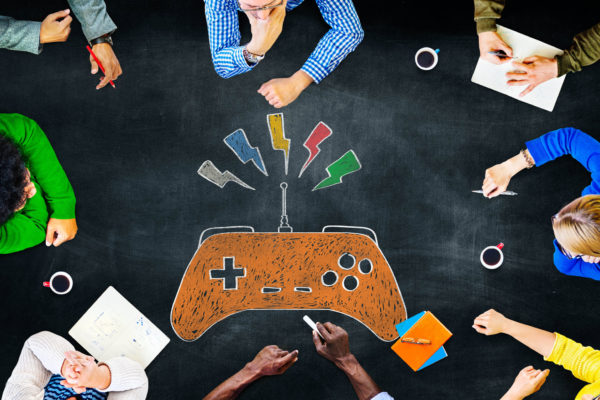Technology is an increasingly important part of children’s’ lives and mobile devices and app proliferation has integrated technology into the lives and identities of young people more than ever before. Resistance to these trends sets educators on a confrontational path – in fact, integrating gaming, technology and education can have a number of effects. Gaming can be an essential component of education.
1. Gaming Improves Hand-Eye Coordination
Whether students are navigating the gaming world through a console controller or a keyboard and mouse, these tools combined with the on-screen display require coordinated hand-eye responses. Even the most basic point-and-click games necessitate quick and accurate hand-eye coordination, and usually as games increase in sophistication, hand-eye coordination skills are strengthened through the game.
Developing these skills can have a big impact on children as so many technological tools require well-functioning hand-eye coordination these days. Children will be well equipped for everything from driving a car to flourishing on the sports field with these skills.
2. Gaming Expands Children’s Memory Capacity
Many games have gameplay that focuses on memory and the way a player can utilize memory skills in different environments, carrying information from one screen to the next. Memory is a skill that can be developed and improved with practice, just like any other, so if a child is required to test and stretch their memory faculties through gameplay, their capacity will expand over time.
This will have an obvious impact when it comes to exam time. Students will be well prepared to memorize large bodies of information and carry that into an exam setting, excelling in their studies and beyond.
3. Gaming Teaches Strategic Thinking and Problem-Solving Skills
The best games are structured so as to demand strategic thinking, and children get engrossed in games where they are forced to problem solve to progress through levels. “Encouraging planning ahead in students will give them the tools for structuring their study sessions outside the time they spend gaming,” says Chris Middleton, educator at Assignment Help and Essay Services. “With sharply honed problem-solving skills, students will be up to any challenge that is presented to them in the classroom.”
Gaming is an excellent way to develop not only these skills but also the confidence to apply them. Games provide a supportive environment to explore and develop these skills which can then be applied out with the gaming world.
4. Gaming Teaches Computer Fluency
Our world is becoming increasingly dominated by technology, and no matter what industry a student enters in later life, their professional career will be closely linked with computer literacy. Students who build a familiarity with a variety of technologies in their early school careers are more likely to flourish with technology in later life.
“Many games provide an introduction to coding and programming,” says Anita Powell, teacher at UK Writings and Ukservicesreviews. “When students begin to understand how technology works, they are better able to approach new technologies and quickly integrate them into their lives.”
5. Gaming Supports Children With Attention Disorders
Research has shown that learning through gaming can be especially helpful for students struggling with attention disorders. This may surprise some people as often the rise of video games is blamed for the increased incidence of attention disorders amongst young people. However, it has been demonstrated that the simulated environment that gaming builds provides a backdrop that assists students concentration. Various learning experiences can then be incorporated into this environment.
Children with attention disorders often struggle in traditional classroom set ups, and some teachers even find them disruptive. By incorporating gaming into your regular pedagogy, you will discover a way to engage these kids, helping them and those around them learn without distraction. Early introduction of these learning tools can dramatically reduce educational inequality down the line.
Class Dismissed
Whilst some educational practitioners remain sceptical about the value of computer games in the classroom, falling back on traditional prejudices about gaming kids, the truth is that gaming is just another pedagogic tool and has a number of benefits. Building students’ familiarity with technology will have huge ramifications for their employability in later life, and computer games can integrate different skills and challenges in surprising ways. Game on!
This was written by a freelance writer
Katherine Rundell is a writer at Write My Essay and BigAssignments services. She works as an educational facilitator in high schools across North America, helping institutions integrate new technology with their pedagogic agendas. Katherine is also a blogger at Essay writing services reviews.
If you enjoy games and gaming and want more NEWS from the Gaming World Click Here







